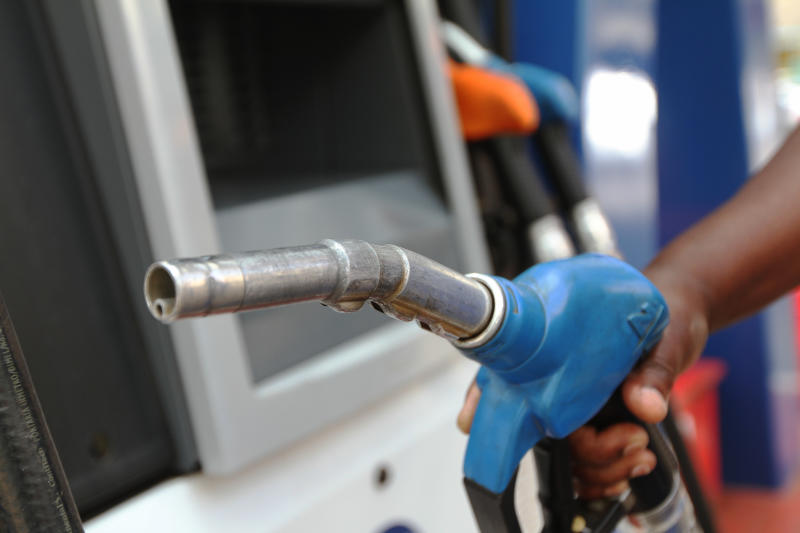
You may have come across petrol stations that sell their fuel at lower prices than those of the more visible outlets mostly owned by multinationals.
A spot check on a number of these petrol stations showed they offer motorists discounts of up to Sh3 per litre on super petrol and Sh4 per litre on diesel.
For instance, if the Energy and Petroleum Regulatory Authority (Epra) sets the ceiling at Sh106.5 per litre of super petrol in Nairobi and Sh95 per litre of diesel in its monthly pricing guide, select outlets owned by the medium and small-sized companies are able to sell their products at Sh103 per litre of petrol and Sh91 for diesel.
Other traders who have one or two standalone pumps and rarely care about branding are able to offer even lower prices.
But how are they able to do this? They say it is as a result of a combination of factors, including the fact that they do not have to share their margins as is the case with petrol stations that bear the branding of popular oil marketing companies.
The fuel capping formula gives retailers a total of Sh8.19 per litre of fuel as the retail margin, which is split into retail investment margin (Sh4.05 per litre) and retail operating margin (Sh4.14 per litre).
Running expenses
For dealers who operate company-owned retail outlets, it means they will only get the operating margin, while the oil major owning the outlet gets the investment margin.
There are, however, instances where the dealers also own the outlets and hence are entitled to the investment margin but still have to remit some money for using the multinationals’ brands.
They are also tied to buying petroleum products from the same companies.
“When you look at an outlet branded by a multinational, as per the formula, the deal gets a margin on petroleum products of Sh4.05 per litre. Using this, he has to take care of transport and other running expenses,” said Kenya Independent Petroleum Distributors Association (Kipeda) Chairman Joseph Karanja.
“They are heavily regulated by the mother company, and at the end of the day, they will end up with a margin of less than Sh2.50.”
For the independent dealers, however, they pocket Sh4.05 for the fuel and Sh4.14 per litre for their investment in the outlet, a total of Sh8.19.
Karanja added that the independents, when restocking, are not bound to buying from one company and hence are able to take advantage of deals within the industry.
In the case of petrol stations that have a particular brand, they can only get products from the particular marketer even when a competitor is offering better rates.
“Because we are independent, we are open to buying products from anyone who has a surplus or has financial constraints and needs to dispose of the product fast to raise cash. The Kenya Pipeline Company (KPC) also penalises marketers when products overstay at their facilities and at times they will also want to dispose of them fast to avoid the penalties,” he said.
“We have such advantages, which enable us to offer discounts to consumers.”
Benito Ngugi, chief executive Eqwipetrol – which brands independents and manages their fuel supply chain – noted that they are freer in determining prices compared to their counterparts branded by multinationals but independent dealers have to work harder to get traffic to their stations.
And unlike the big companies, which because of their financial muscle can undertake major marketing campaigns and easily woo motorists, the independent dealers largely depend on discounts.
“The independents have to use price as one of the things that attract customers. Everybody loves a bargain,” he said.
Some of the dealers, however, employ unscrupulous means to win customers, announcing discounts but in the actual sense, their products are more costly.
A motorist recently flagged one such oil marketing company, which had indicated it was selling a litre of super petrol at Sh103.2.
This seemed like a discount from the Sh107.27 per litre maximum price that petrol stations can charge, but as the motorist would later realise, they were being charged Sh114 per litre, about Sh7 higher than the maximum allowable price per litre of petrol in Nairobi.
The small oil marketing companies have also been cited as among the major culprits when it comes to adulteration of fuel.
This has, however, gone down significantly after the government raised taxes on kerosene, putting its retail price at par with that of diesel.
The rogue traders would shore up volumes of diesel by mixing it with kerosene and selling to unsuspecting motorists.
The taxation on petroleum products mirrors other jurisdictions such as South Africa where taxes account for 40 per cent of the retail prices.
Also affecting the price of fuel was an increase in the margins of retailers.
emacharia@standardmedia.co.ke




No comments :
Post a Comment